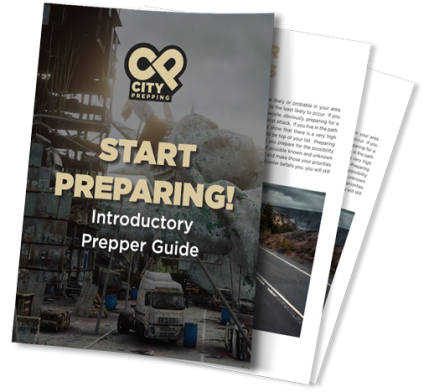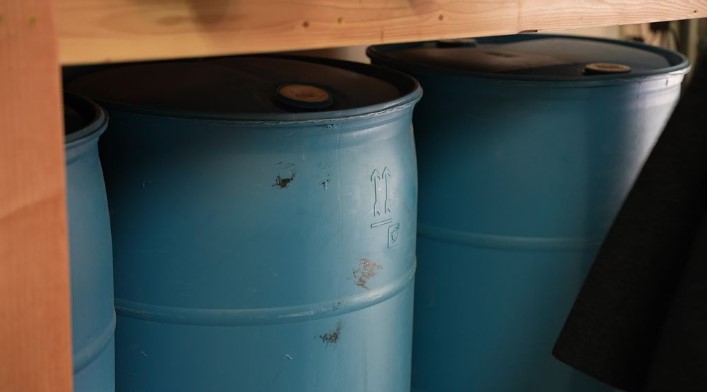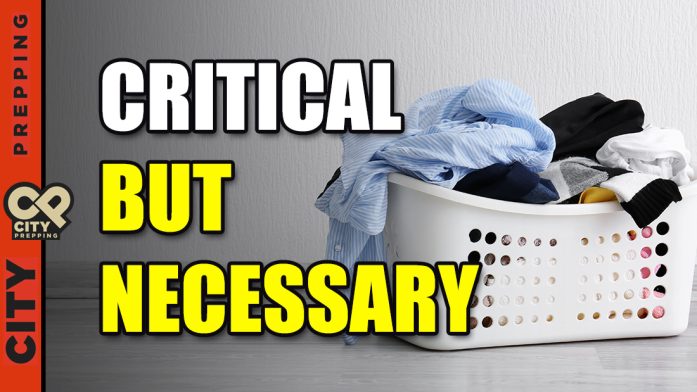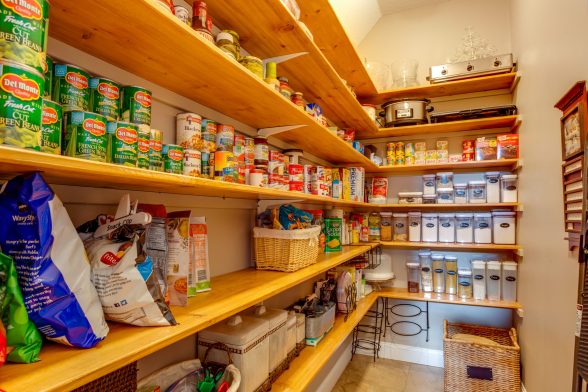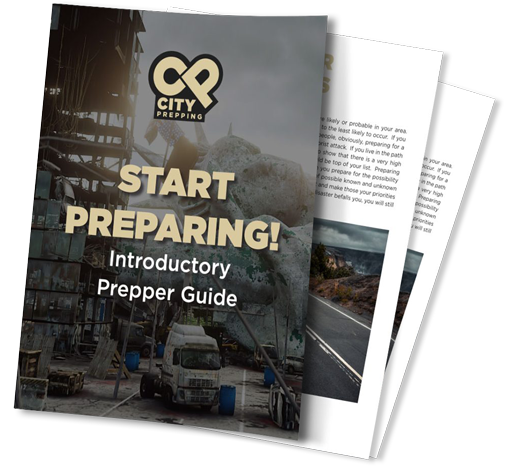WHAT’S HAPPENING
Years ago, when you wanted a product or good, you had to place an order and wait. If it was a popular product on a store shelf, in a back warehouse, or off-site at a holding warehouse, you could receive the product in a short amount of time. If it wasn’t in stock somewhere, an order was placed with a manufacturer, and you would wait, and wait, and wait, until it was finally manufactured because enough other orders were placed to warrant that manufacturer to gather the necessary raw materials and fire up his machines. It was such a different world just a decade or two ago. In recent years manufacturing moved to countries that could pay less and generate products faster and cheaper. Delivery systems became more efficient. Computerization eliminated the need for paper orders to be delivered or transcribed over the phone. Globalization built up an extremely effective and efficient ordering and delivery system. As a result, on-hand inventory shrunk, and savings could be realized by not storing large quantities of products on the shelf. In economic terms, supply ramped up slowly to meet demand. When a product was no longer in demand, manufacturers retooled their factories for a product that was in higher demand. Raw material producers, manufacturers, distributors, and sales all finely tuned their processes to have as little overhead and product and as much profit as possible. When the system is working great, it’s paradise. Imagine you’re in a sports stadium with 50,000 other fans. There’s enough beer, nachos, hot dogs, and other foods to go around. The sports venue’s food services have looked at what they typically sell and the maximum capacity of the stadium and cipher out from that the amount of product they were likely to sell. They then gamble on their accuracy by ordering just that amount of product, let’s say hot dogs, in this case. If the demand is suddenly higher than average for hot dogs, they run out. Seizing the opportunity presented by short supply, an independent hot dog vendor might raise his price because the demand is high. When they are gone, they are gone. If you really crave a hot dog, you have to pay up. The basic laws of supply and demand still work in the just-in-time systems of today, but they are far more volatile. Supply has become more efficient and way thinner. It is now one delivery per month instead of ten, perhaps. It is one factory manufacturing a given product instead of five factories around the world needed to supply their region of the globe. It’s now one refinery instead of six. We can see the proof that this system is susceptible to wider swings and greater volatility today in both significant and seemingly inconsequential shortages.NO SHORTAGE OF SHORTAGES
There are a few shortages I will refer to here as odd because we probably didn’t see it coming, and they don’t impact our lives all that greatly. So, we tend to shrug them off, scratch our heads, and move on with our lives. I won’t go too in-depth into these, as they are not as critical. Still, it is worth understanding the whats and whys to understand better the system’s fragility and its susceptibility to collapse. Some of the reasons for some shortages are obvious, some not so obvious. Any way you look at it, though, the fact that we are experiencing more shortages and a higher frequency of shortages is undeniable. Here are some of the notable shortages last year, this year, and on the horizon. SURGICAL MASKS Obviously, with COVID-19, one of the first shortages to be realized and addressed was Personal Protection Equipment or PPE. In the early days of COVID, around March of 2020, we were only beginning to understand how SARS-COV-2 was spread. Once the need for PPE was realized, and the virus rose from a few cases in other countries to a global pandemic, the supply of PPE went from just enough to woefully insufficient. Manufacturers worldwide were tapped to increase supply. This is an example of sudden demand outpacing inventory.
COINS
Obviously, with COVID-19, one of the first shortages to be realized and addressed was Personal Protection Equipment or PPE. In the early days of COVID, around March of 2020, we were only beginning to understand how SARS-COV-2 was spread. Once the need for PPE was realized, and the virus rose from a few cases in other countries to a global pandemic, the supply of PPE went from just enough to woefully insufficient. Manufacturers worldwide were tapped to increase supply. This is an example of sudden demand outpacing inventory.
COINS
 As businesses shifted their models to more electronic and paperless transactions, in-person transactions decreased during lockdowns. People saved money and spent less, fearing a more significant economic decline, and the actual supply of coinage decreased. There is an adequate supply of coins in the economy, but the slowed pace of circulation has resulted in reduced quantities where they are needed. The Mint only adds about 17% of new coins to the market. Most of the coins are recycled from retail transactions and recirculated. The impact of COVID-19 resulted in the disruption of the supply chains and circulating supplies of pennies, nickels, dimes, and quarters. This is an example of how close to the bone supply and distribution models have gotten in the name of greater efficiency.
KETCHUP PACKETS
As businesses shifted their models to more electronic and paperless transactions, in-person transactions decreased during lockdowns. People saved money and spent less, fearing a more significant economic decline, and the actual supply of coinage decreased. There is an adequate supply of coins in the economy, but the slowed pace of circulation has resulted in reduced quantities where they are needed. The Mint only adds about 17% of new coins to the market. Most of the coins are recycled from retail transactions and recirculated. The impact of COVID-19 resulted in the disruption of the supply chains and circulating supplies of pennies, nickels, dimes, and quarters. This is an example of how close to the bone supply and distribution models have gotten in the name of greater efficiency.
KETCHUP PACKETS
 Ketchup packets seem like an odd shortage until you contemplate the reasons. Typically, a percentage of people went through the drive-thru, and the rest dined in the restaurant. When take-out and drive-thru were the only options because of COVID restrictions, the supply of ketchup packets shriveled up as needs forced demand went up.
TOILET PAPER
Ketchup packets seem like an odd shortage until you contemplate the reasons. Typically, a percentage of people went through the drive-thru, and the rest dined in the restaurant. When take-out and drive-thru were the only options because of COVID restrictions, the supply of ketchup packets shriveled up as needs forced demand went up.
TOILET PAPER
 The great toilet paper shortages of 2020 were primarily from people panicking and buying all the available supplies. Somewhere, someone is sitting on a lifetime supply. 2021, however, brought some new hiccups. The behemoth Evergreen container ship and the flotilla of backed-up cargo ships trying to transit the Suez Canal also blocked up the wood pulp cargo on its way to paper manufacturers. Significant disruptions to the pulp trade could impact toilet paper supplies if producers don’t have sufficient inventories. Brazil accounts for about one-third of all the global supply of hardwood pulp. Toilet paper is typically made to order because it takes up so much room. Storing large quantities is not profitable, so the industry typically has only a few months of inventory on hand. The vast majority of toilet paper consumed by Americans is made in North America. But about 10 percent of the giant rolls of paper are used to make the rolls that end up in American bathrooms come from China and India. So, while TP isn’t yet in short supply, the perception that it could be coupled with some supply chain problems could result in dramatic price increases and scarcity. You might not want to get rid of your lifetime supply of TP just yet.
MICROCHIPS
The great toilet paper shortages of 2020 were primarily from people panicking and buying all the available supplies. Somewhere, someone is sitting on a lifetime supply. 2021, however, brought some new hiccups. The behemoth Evergreen container ship and the flotilla of backed-up cargo ships trying to transit the Suez Canal also blocked up the wood pulp cargo on its way to paper manufacturers. Significant disruptions to the pulp trade could impact toilet paper supplies if producers don’t have sufficient inventories. Brazil accounts for about one-third of all the global supply of hardwood pulp. Toilet paper is typically made to order because it takes up so much room. Storing large quantities is not profitable, so the industry typically has only a few months of inventory on hand. The vast majority of toilet paper consumed by Americans is made in North America. But about 10 percent of the giant rolls of paper are used to make the rolls that end up in American bathrooms come from China and India. So, while TP isn’t yet in short supply, the perception that it could be coupled with some supply chain problems could result in dramatic price increases and scarcity. You might not want to get rid of your lifetime supply of TP just yet.
MICROCHIPS
 As kids went to school online and talked their parents into buying them the PS5, and parents started working from home during the pandemic, the demand for semiconductors and personal computers, and electronics skyrocketed. Demand for electronics, shifting business models, including outsourcing production, and effects from a trade war resulted in chips being in short supply while demand remains high. Manufacturers have had to slow production, and this chip shortage affects everything from your laptop to mobile phones to appliances to the car you want to buy. Expect demand and prices to remain high while supply and production output remains low. This is an example of economies shifting priorities.
LUMBER
As kids went to school online and talked their parents into buying them the PS5, and parents started working from home during the pandemic, the demand for semiconductors and personal computers, and electronics skyrocketed. Demand for electronics, shifting business models, including outsourcing production, and effects from a trade war resulted in chips being in short supply while demand remains high. Manufacturers have had to slow production, and this chip shortage affects everything from your laptop to mobile phones to appliances to the car you want to buy. Expect demand and prices to remain high while supply and production output remains low. This is an example of economies shifting priorities.
LUMBER
 COVID-snarled supply chains and greater demand from consumers have resulted in low inventories and astronomical prices for lumber. The cost of plywood is up an incredible 250% in just a year, and the kink in the system doesn’t look to be resolving itself anytime soon. When a sheet of plywood hovers at a cost just below $100, the cost of construction and housing go up to balance out the equation. Those costs, of course, get passed on to you–the consumer.
BICYCLES
COVID-snarled supply chains and greater demand from consumers have resulted in low inventories and astronomical prices for lumber. The cost of plywood is up an incredible 250% in just a year, and the kink in the system doesn’t look to be resolving itself anytime soon. When a sheet of plywood hovers at a cost just below $100, the cost of construction and housing go up to balance out the equation. Those costs, of course, get passed on to you–the consumer.
BICYCLES
 Early in the pandemic, people found themselves without a gym and spending more time at home. They dusted off old bicycles or purchased new ones to not lose their minds indoors from cabin fever. The supply quickly disappeared, and new bikes soared in price over 120%. Bicycle repair shops servicing old bikes experienced a backlog of repairs. The supply disruption still hasn’t found an equilibrium.
ALUMINUM CANS & GLASS JARS
Early in the pandemic, people found themselves without a gym and spending more time at home. They dusted off old bicycles or purchased new ones to not lose their minds indoors from cabin fever. The supply quickly disappeared, and new bikes soared in price over 120%. Bicycle repair shops servicing old bikes experienced a backlog of repairs. The supply disruption still hasn’t found an equilibrium.
ALUMINUM CANS & GLASS JARS
 As beverage consumption moved away from restaurant kegs and fountain drinks to home consumption, the current supplies of canned goods quickly shrank. Raw materials in transit have also slowed, though production has ramped up. Also, the number of people cooking and trying recipes during the pandemic has increased and led to a surge in canning. Jar sales went up 600%, and supplies disappeared. Here, too, manufacturing had to shift priorities and ramp up production at a time when the shipment of raw materials was also challenging. A seemingly insignificant consequence of this shortage was that Burger King had to delay the rollout of one of its sandwiches because they couldn’t get the jars for the pickles they needed for the sandwich. No big deal, right? I point it out here, though, because I think it’s essential to understand how one shortage can ripple out across an economy and affect multiple other products.
SHIPPING CONTAINERS
As beverage consumption moved away from restaurant kegs and fountain drinks to home consumption, the current supplies of canned goods quickly shrank. Raw materials in transit have also slowed, though production has ramped up. Also, the number of people cooking and trying recipes during the pandemic has increased and led to a surge in canning. Jar sales went up 600%, and supplies disappeared. Here, too, manufacturing had to shift priorities and ramp up production at a time when the shipment of raw materials was also challenging. A seemingly insignificant consequence of this shortage was that Burger King had to delay the rollout of one of its sandwiches because they couldn’t get the jars for the pickles they needed for the sandwich. No big deal, right? I point it out here, though, because I think it’s essential to understand how one shortage can ripple out across an economy and affect multiple other products.
SHIPPING CONTAINERS
 Products are shipped from manufacturers to distributors in shipping containers. 90% of goods worldwide are shipped in those big metal boxes on cargo ships, trains, and trucks. That’s great, but what about that shipping container– the big steel wrapper all that product arrived at your country inside of? Somehow that has to get back to the manufacturing country to be reused. Still, it isn’t exactly profitable to ship empty containers, and there aren’t many products going the other direction. When the Evergreen container ship was stuck in the Suez Canal, manufacturers in many countries had to halt production because they didn’t have containers in which to ship their products.
CHICKEN WINGS & NUGGETS
Products are shipped from manufacturers to distributors in shipping containers. 90% of goods worldwide are shipped in those big metal boxes on cargo ships, trains, and trucks. That’s great, but what about that shipping container– the big steel wrapper all that product arrived at your country inside of? Somehow that has to get back to the manufacturing country to be reused. Still, it isn’t exactly profitable to ship empty containers, and there aren’t many products going the other direction. When the Evergreen container ship was stuck in the Suez Canal, manufacturers in many countries had to halt production because they didn’t have containers in which to ship their products.
CHICKEN WINGS & NUGGETS
 Americans turned to comfort food to stave off the big bummer of being locked down. This brought America’s cold storage stock of chicken wings to its lowest point in over a decade. Chicken nuggets are mainly made in China, and the flow of meat from that country hasn’t exactly been smooth sailing. A continuing trade war has compounded this. The whole meat distribution system is truly a little odd. We may produce the meat in the U.S., ship it to China for processing, then back to consumers here. That’s far from the farm-to-table model. You can see this problem when you pick up meat from your grocery store meat department. Have you noticed the label that says your steak was processed either in Canada, Mexico, or the United States? To me, that’s rather scary that they can’t tell me the source of one steak.
Americans turned to comfort food to stave off the big bummer of being locked down. This brought America’s cold storage stock of chicken wings to its lowest point in over a decade. Chicken nuggets are mainly made in China, and the flow of meat from that country hasn’t exactly been smooth sailing. A continuing trade war has compounded this. The whole meat distribution system is truly a little odd. We may produce the meat in the U.S., ship it to China for processing, then back to consumers here. That’s far from the farm-to-table model. You can see this problem when you pick up meat from your grocery store meat department. Have you noticed the label that says your steak was processed either in Canada, Mexico, or the United States? To me, that’s rather scary that they can’t tell me the source of one steak.



